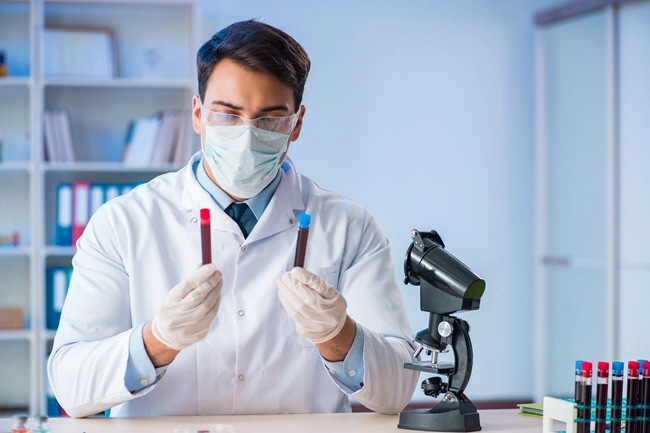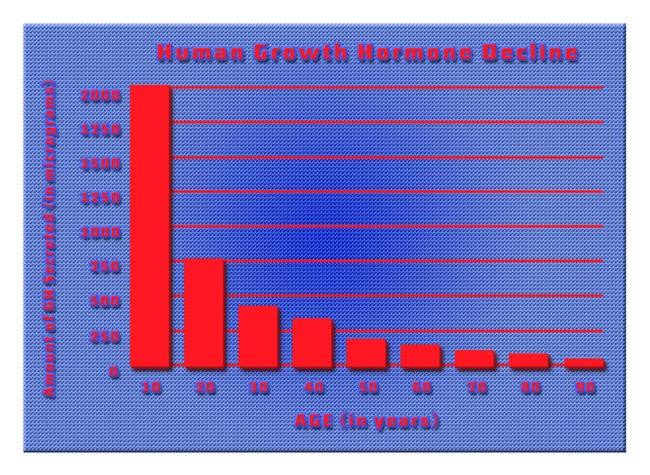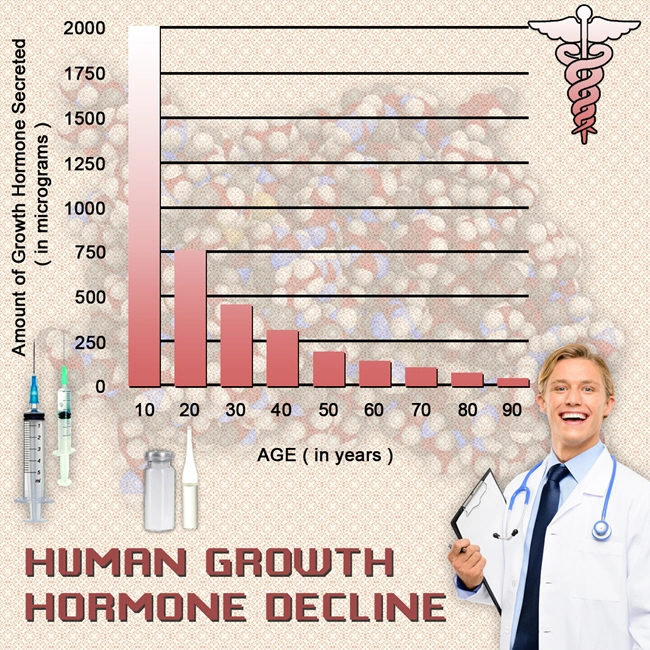
Video Link: https://vimeo.com/279333251
Video Download: Click Here To Download Video
Video Stream: Click Here To Stream Video
Video Link: https://vimeo.com/279333075
Video Download: Click Here To Download Video
Video Stream: Click Here To Stream Video
Video Link: https://vimeo.com/279332960
Video Download: Click Here To Download Video
Video Stream: Click Here To Stream Video
As the year winds down, many folks are looking to the next year to make positive changes. Many New Year's resolutions revolve around developing better eating habits.
“You are what you eat” is far more than an often-quoted cliche. It is one of the most important things you can do to get and stay healthy. Maybe the most important.
When people talk about “eating better," they usually vow to consume more fresh fruits and vegetables, or drink more water, or add a few quality supplements to their daily fare.
These are all great ideas.
But what you don't put in your body is as important as what you do put in it.
Think about it. Most of us would never consider putting cheap, inferior gas, and oil in our cars. Yet most people gobble down slop that would make pigs sick. And they do this daily.
If you are serious about eating for health, it begins with what to avoid. Here are a few suggestions...
1. Microwave popcorn. Yes, it's convenient. But it also contains many unpleasant surprises. First off, let's look at the bag. The inner lining of most microwave bags is composed of perfluorooctanoic acid or PFOA. Also found in Teflon, this chemical is considered a toxin. According to a recent study at the University of California, PFOA may increase the likelihood of a woman experiencing infertility if exposed.
Numerous studies in both laboratory animals and humans show that exposure to PFOA significantly increases the risk of kidney, bladder, liver, pancreas, and testicular cancers. Read more about it at cancer.org.
 But we're not done yet. It's time to consider what's inside the bag. The oil used with many popcorn brands is soybean oil, which is usually a genetically modified (GMO) product. The problem with any GMO product is that it is loaded with a broad range of unhealthy preservatives like propyl gallate. Preservatives are linked to digestion issues, skin problems, asthma, and cancer. But you wouldn't know it by reading the label.
But we're not done yet. It's time to consider what's inside the bag. The oil used with many popcorn brands is soybean oil, which is usually a genetically modified (GMO) product. The problem with any GMO product is that it is loaded with a broad range of unhealthy preservatives like propyl gallate. Preservatives are linked to digestion issues, skin problems, asthma, and cancer. But you wouldn't know it by reading the label.
Why? Because the Food and Drug Administration (FDA) does not require genetically modified corn to be listed as such. Even if these popcorn brands do not use GMOs, they are not pesticide-free since they were not derived from organic corn.
So we've examined the bag, the ingredients inside the bag, and now let's look at what is put on the corn itself: diacetyl. You may have read about the damage to the lungs of workers in the Conagra factory where microwave popcorn was produced.
This is the hideous substance that was responsible for it. It may take a few extra minutes to air-pop your popcorn. But the health benefits are well worth the wait, and the refined, fresh taste is the icing on the cake.
2. Inorganic fruit. Non-organic fruits almost always contain hazardous pesticides including atrazine, organophosphates and fertilizers containing a lot of nitrogen-based compounds.
Interestingly, atrazine is illegal in Europe, but our FDA has still not moved to do the same in America. This chemical is marketed to kill weeds and is  extremely hazardous to humans, especially regarding our reproductive health.
extremely hazardous to humans, especially regarding our reproductive health.
A study conducted in 2009 showed significant effects on babies who were exposed to atrazine in the womb. The mothers were drinking atrazine-contaminated water and it resulted in low birth weights for the children.
In their never-ending quest for profits, the giant agricultural companies (Big Agra) use tons of pesticides and other chemicals s on our products, in addition to hormones that make larger vegetables and fruit.
The worst produce that you can buy inorganic is apples. 98 per cent of apples tested for various pesticides came back positive.
Other fruits to watch out for include strawberries, oranges, and grapes because 90 per cent of each of these fruits test positive for pesticides.
Unfortunately, washing your fruits and vegetables will not remove all of the pesticide residues. It makes sense that these chemicals can cause issues in our bodies since they are literally designed to kill another living being -- mainly insects. The takeaway? Eat organic as much as possible.
3. Canned Tomatoes. Foods packaged in cans are a problem due to the internal lining of the can that contains a synthetic compound: bisphenol-A (BPA).
 A scary study that was published in the May 2013 journal, Proceedings of the National Academy of Sciences, concluded that ingestion of BPA altered the genetic functions inside the brains of rats.
A scary study that was published in the May 2013 journal, Proceedings of the National Academy of Sciences, concluded that ingestion of BPA altered the genetic functions inside the brains of rats.
Thankfully the FDA is finally moving its quicksand-laden feet on BPA since its dangers can no longer be suppressed or ignored. Of course, it may take years for them to either eliminate BPA or minimize its use.
But we don't have to wait on Leviathan bureaucrats. We can reduce our exposure to cans now.
Why tomatoes? Tomatoes are especially risky because they are very acidic and this acid breaks down inside the can, resulting in leakage of BPA into the contents of the can.
The risk of high levels of BPA in canned food is so high that it has been advised that canned food be avoided by children. Again, there are zero legal standards regarding the labeling of BPA on cans, due to certain laws by the FDA, Therefore, if a can doesn't say BPA-free on it, it probably contains small amounts of BPA.
It is best for you to stop eating canned food altogether. Try to slowly integrate more fresh fruits and vegetables into your meal plan as well as foods contained in glass.
4. Processed Meat. Processed meat includes things such as hot dogs, deli meat, bacon, and sausages, for example.
Processed meat is a processed food that subsequently contains chemicals as well as excessive salt which is awful for your health, according to research from the Journal of BMC Medicine.
of BMC Medicine.
The aforementioned research described how within twelve years, a person who consumed 160 grams or more of processed meat increased the risk of an earlier death by about 44% compared to people who ate only 20 grams or less.
The research took place over the course of almost thirteen years and across 10 countries in Europe.
Here's the problem: processed meats are loaded with various preservatives and chemicals, proprietary cocktails of toxic chemicals, including the most common, sodium nitrates. The nitrates in processed meat keep them looking fresh and tasty for better sales and longer shelf lives but they are actually known to be carcinogenic. Yet, believe it or not, profit-driven companies still use them.
Smoked meats appear to actually be incredibly dangerous because, throughout the smoking process, the meat absorbs tar. Yes, good old tar, exactly what is also found in the cancer-causing cigarettes people are still smoking to this day.
5. Farmed Salmon. Although fish is usually a very healthy food, it depends on where and how they are raised and fed. When you think of salmon, you picture big, healthy, beautiful salmon swimming and jumping upstream in some Alaskan picturesque stream, right? I do, at least. Unfortunately, for most of the salmon that people in the United States consume, this is not their life. Most of the salmon we eat are farm-raised: approximately sixty percent!
You might not think that farmed salmon is anything bad, but the reality is, most of these fish are very unhealthy and are fed a disturbing cocktail of antibiotics (contributing to the antibiotic resistance we are seeing), pesticides and cancer-causing chemicals.  (Bon Appetit!).
(Bon Appetit!).
In fact, the cancer-causing chemicals that are given to these fish is just to make them look appetizing and healthy -- the reality is, if they weren't given this chemical, they would not have the pink/reddish color they normally would have. This is because their diet is so unhealthy and unnatural, they lose their natural coloring. So the farmers fake it with chemicals that are potentially harming us as we chow down.
In addition, because their diet is so poor, we are also missing out on the expected omega-3 fatty acids we assume we are getting from the fatty fish we consume, including salmon. Salmon is supposed to be a good source of omega-3s, but not when it's farmed!
Not only that, but scientific studies have shown that farmed salmon are also contaminated with hormone disruptors, including polychlorinated biphenyls (PCBs), mercury (a known neurotoxin) and dioxins. Avoid this type of fish at all costs!
You can find wild salmon in cans at your grocery store or pick cans or ensure that the labeling states that the fish is wild sockeye salmon. These are much better choices than the standard farmed salmon.
6. Potato Chips. These are an easy-to-get, cheap and yummy snack. However, what they do to your body is not worth the quick satisfaction you get from chowing down on a bag of chips.
Yummy potato chips are, unfortunately, full of calories AND fat and this will certainly cause weight gain.
One study, from the New England Journal of Medicine, described how eating only 1 ounce of chips a day could cause an annual weight gain of two pounds a year. Yikes!
Other issues with potato chips include the high amounts of trans fats that increase LDL (the "bad cholesterol" in many people, and the large amounts of salt which boosts blood pressure.
Potato chips are loaded with artificial flavors, many preservatives, and colors or dyes, more garbage you don't need. As if all that isn't enough, because chips are fried at very high temperatures (which makes them so crispy and crunchy), a carcinogen called acrylamide can form on them. The problem with this is that this toxin is one of the main ingredients in cigarettes.
If you must eat them to preserve peace in the family, or if you have an occasional craving, buy baked potato chips or tortilla chips. Both of these have lower amounts of calories and fat.
Consider healthier options for snacks such as pretzels or veggies and hummus.
You could even try baked fruit chips, like baked apples or bananas to keep that satisfying crunch in your life.
7. Hydrogenated oils. It's debatable whether any oil is good for you, but hydrogenated oils are some of the worst. Hydrogenation is when a liquid unsaturated fat is turned into a solid, saturated fat by adding hydrogen to its lipid chain. All of these hydrogenated oils come from plants, or vegetables.
Vegetable oils are not something that is found naturally in the wild or that can be produced naturally, without major processing. In fact, these oils must be removed chemically, with complicated chemical reactions by chemists. Sounds complicated, right? That's because it is. These are not oils that are extracted naturally like the dairy that is then churned to make butter. The initial product would not look great to customers either, so the oil is deodorized and colors added to make it more appealing. In it's natural form, would we even want to eat it? Our brains would probably tell us, "No, this looks awful! Do not consume!" But the food companies trick us.
 When you consume a lot of hydrogenated or vegetable oils, you also consume a high amount of omega-6 fatty acids, since these oils contain mostly omega-6 and not omega-3. This causes an imbalance in your omega fatty acid balance, with the amount of omega-6 being significantly higher than the omega-3s in your body. This can cause a wide range of issues such as cardiovascular issues and an increased risk of cancer, especially skin cancer.
When you consume a lot of hydrogenated or vegetable oils, you also consume a high amount of omega-6 fatty acids, since these oils contain mostly omega-6 and not omega-3. This causes an imbalance in your omega fatty acid balance, with the amount of omega-6 being significantly higher than the omega-3s in your body. This can cause a wide range of issues such as cardiovascular issues and an increased risk of cancer, especially skin cancer.
The goal is to have a healthy ratio of omega-6 to omega-3 fatty acids. You can do this by reducing your intake of omega-6s and adding more omega-3s into your diet. The standard Western diet is usually higher in omega-6 fatty acids than omega-3s. You can do this via supplementation (fish oil, flaxseed oil, chia seeds) or by eating certain fish, such as wild salmon, sardines and mackerel.
The main use of hydrogenated oils is to help Big Agra. They need it to preserve their crappy processed foods that wouldn't stay fresh on shelves for very long without them and to make these foods look more appealing than they really are. Unfortunately, these oils impact our cells and their membranes, which is what causes the increased risk for cancer.
Remember, they are used to increase the bottom line profits of Big Agra...not for your health and well-being.
8. Smoked, pickled, or salted food items. As mentioned previously with processed meats, the main concern here is the preservative, sodium nitrate, and other nitrates as well that maintain color.
These nitrates are linked to cancer, actually, and this is because when they are eaten, the nitrates convert into N-nitroso composites, which are cancer-causing. This insidious substance has been associated with an increased risk of cancer development.
Like before, the smoking of meat and even nuts will cause them to pick up tar during the process which you will then ingest.
 The pickled foods are very high in salt, leading to dehydration and high blood pressure. Other meats are high in salt, as well as fat, including bacon, salami, and bologna.
The pickled foods are very high in salt, leading to dehydration and high blood pressure. Other meats are high in salt, as well as fat, including bacon, salami, and bologna.
There is substantial evidence that the consumption of these processed meats will considerably raise your risk of developing colorectal cancer and stomach cancer.
In fact, stomach cancer is more common in Japan, because the traditional diet includes a considerable amount of very salted and smoked food.
9. Refined White Flour. Most people know that white flour isn't the best flour they could be using for their baking needs. But they may not know just how much it can negatively affect your wellness and health in general. Usually, "refined" anything is not that great for the human body. With refinement, or processing, the natural goodness and nutrients are removed from the final produce, including white flour. There isn't much left to the flour that is beneficial to us.
The issue with white flour, is again, due to money and profits for the companies who are producing these flours for us to consume. The flour mills used to wait a certain amount of time for the flour to whiten on its own. Now, they are impatient and will actually bleach the flour using chlorine gas.
 Yes, the same chlorine gas that, if you were in the same room with, would kill you.
Yes, the same chlorine gas that, if you were in the same room with, would kill you.
Since white flour is the cheapest flour you can buy, it can be found in many foods, especially processed foods. One of the major health concerns is that not only does it offer zero health benefits or nutrients, it also contributes to diabetes, because of its high glycemic rate. It is broken down very quickly in our digestive tract and raises blood sugar and insulin.
This sugar is also what cancer cells like to feed and grow on. If you're looking to prevent cancer, highly consider dropping refined white flour from your baking list and omitting processed foods that contain it.
10. GMO’s. Genetically Modified Organisms (hyphenated as GMO’s) are foods or even insects now, that have been genetically modified and grown by chemicals in a "Frankenstein" manner.
A fascinating, but terrifying, study conducted in Scotland looked at the health effects of GMO's on laboratory rats. The rats were fed a diet of mostly potatoes that had been genetically modified. In literally the first ten days of the study, the scientists noticed bad side effects including precancerous cell growths, impaired immune systems, and brains and livers that had actually shrunk in size. Excuse me, what?
What's amazing is that the FDA has not even approved the use of these foods, which most people are not even aware of. Even if they had, considering the track record of the FDA's reckless disregard for safety, it would not make GMO's a bit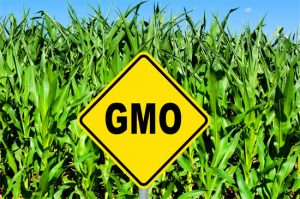 safer.
safer.
There are no testing protocols for genetically modified foods. NONE. ZERO. NADA.
There was only one scientific study published so far that looked at the effects of GMO's. This study demonstrated that the DNA, which is considered foreign DNA, that had been modified in the food can actually move and relocate into the gut bacteria in our digestive tracts. What are the consequences of this?
At this point, we may as well be involved in a human experimental study. What is especially concerning is that a lot of the standard foods we eat are now genetically modified, including most grains, such as wheat, soybeans and corn.
When you go grocery shopping, you'll want to look for labels that say GMO-free, if there are any. These foods do not have to labeled as such so when you see a brand that has chosen to go GMO-free, buy that brand.
11. Refined Sugars. Refined sugars are something that you need to either avoid or eat sparingly. These are the sugars that are digested very quickly and get into the blood stream very quickly, causing a spike of insulin, which, over time, is not good for you body and can lead to diabetes.
 It is a known fact that cancers really like sugary gunk. Cancer cells will grow faster in the presence of high amounts of sugar. Otto Warburg, a scientist in the medical field who won a Nobel Prize, found that cancer cells and tumors both utilize sugar for growth.
It is a known fact that cancers really like sugary gunk. Cancer cells will grow faster in the presence of high amounts of sugar. Otto Warburg, a scientist in the medical field who won a Nobel Prize, found that cancer cells and tumors both utilize sugar for growth.
What is easiest for these cancer cells to digest is high fructose corn syrup or other foods high in fructose that is easily and quickly absorbed. Even though fruits have fructose, this is not the case with fruit since fruits are high in fiber and take longer to be digested. This leads to a slower release of the sugars that the body can adequately handle.
High fructose corn syrup is definitely the worst here, but you must also try to avoid regular consumption of cake, cookies, soda, juices, cereals and other processed foods that contain a lot of refined sugar and especially high fructose corn syrup.
No wonder cancer rates are on the rise!
12. Artificial Sweeteners. There is a cruel irony here. People who need to lose weight or have diabetes, use artificial sweeteners to avoid sugar.
Sounds good. But in reality, numerous studies have demonstrated that people who regularly eat foods or drink beverages with artificial sweeteners actually gain weight! Artificial sweeteners also do little or nothing for people who have diabetes. There is no benefit for them.
In fact, artificial sweeteners make it even harder for diabetics in the long-run and even make things worse. It's much harder for them to control their blood sugar and issues such as cataracts and gastro paresis can worsen.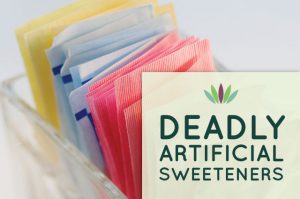
One artificial sweetener that has been used extensively in our drinks is aspartame, even though it can cause convulsions. Sometimes these can be mistaken for someone negatively reacting to their insulin.
Artificial sweeteners are addictive and once you start consuming them regularly, you can quickly lose control of your caloric intake and eat more than you wanted to. Your body will want more and more sweet foods and junk type foods. It can become a vicious cycle. Well, we’ve already discussed how refined sugars can cause cancer.
With aspartame especially, it's been found that after the sweeteners are consumed, they can be broken down into a toxic chemical called DKP. This chemical triggers the development of cancer, mostly brain cancer and tumors.
There are no shortcuts. Avoid this poison.
13. “Diet Anything.” Most foods that are labeled as a "diet" food or even as "low-fat" are ones to be on the lookout for and avoid. They are not your friends even though those friendly words might make you think so. This is because they usually contain artificial sweeteners, such as aspartame, which were created in a laboratory and are not good for your health.
Some of the worst side effects of aspartame, as discovered by scientific research, are not only cancer, but even birth defects.
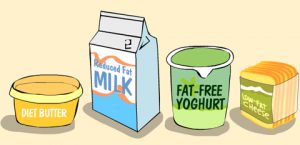 "Diet" foods are not natural foods. They have all been modified in some way and chemically changed or created to simulate something like food. Even the flavoring and coloring is fake -- made up of chemicals -- and chemicals that you do not want to ingest.
"Diet" foods are not natural foods. They have all been modified in some way and chemically changed or created to simulate something like food. Even the flavoring and coloring is fake -- made up of chemicals -- and chemicals that you do not want to ingest.
Don’t forget; artificial foods are not real, natural, nourishing foods Even though regulatory agencies, such as the FDA, are allowing them to be on the shelves for your consumption, just remember their cozy relationship with Big Agra. Keep it as natural as possible.
Not only are they horrible for your health, but artificial additives are about as addictive as, and act like, cocaine in our brains. The food companies are loving this because then we just go back for more!
Don't put anything beyond Big Agra's never-ending quest for profit. The more addictive, the better, at least for Big Agra. As mentioned earlier, keep it natural and organic.
14. Alcohol. A rather long-term and large study looking at the effects of diet and lifestyle on postmenopausal women found that the breast cancer rates were increased by 30 per cent for women who just consumed one drink a day or less, compared to women who abstained from alcohol. The study encompassed the data of 200,000 women, a large and adequate data set.
In fact, alcohol consumption is the second leading cause of cancer, with the first being tobacco use. Even though the previous study mentioned showed that just one drink a day or less can cause an increase in breast cancer rates, there are other studies that have shown that moderate or low consumption of alcohol can have some benefits, such as a lower risk of heart disease (we're not too sure how much we believe that one). But excessive consumption of alcohol definitely leads to problems, including addiction, heart failure, sudden death and/or stroke.
Way back in 2007, scientific experts came together to look at the data from a total of 27 studies looking at the correlation between alcohol and cancer. The scientists were with the World Health Organization International Agency for Research on Cancer. These guys knew what they were looking at, for sure.
Not only did they find that alcohol causes some health issues, but they also found that heavy alcohol consumption is the number one cause of multiple cancers, including rectum, breast, liver, colon, mouth, and others. What else would you expect from a chemical that is literally used to kill and preserve biological samples of insects for study?
This doesn't mean that you need to abstain from alcohol entirely. Provided you have no serious medical condition, moderate alcohol intake can be relaxing, and possibly have a few beneficial health benefits.
The key is moderation: about two drinks per day for men and one for women.
15. Red Meat. We evolved eating red meat, but not the kind of meat that is available in our grocery stores today. The difference is how the cattle are fed. They  are meant to eat grass.
are meant to eat grass.
But in Big Agra's mass production farms, cattle are fed cheaper corn, which is not a natural food for them.
There actually is some evidence that red meat is good for you if eaten in moderation and if it is from grass-fed cattle. The linoleic acid found in grass-fed beef may actually protect against some cancers.
16. Soda Pop. The American Journal of Nutrition published a study citing that regular consumption of soda puts folks at increased stroke risk. Just gulping down a mere one can of soda a day may put you in the danger zone. 
A can of soda is just a sugar bomb and nothing else. There are zero nutrients or anything healthy that your body would need. It is all empty calories with lots of sugar that contributes to the obesity epidemic ravaging the country.
The sugar found in soda is also quickly digested (and not slowly, like the sugar found in fruits or complex carbs), which leads to inflammation and insulin resistance. This can cause type 2 diabetes as well.
Soda can also cause acid reflux, when the acid in the stomach leaks into the esophagus, resulting in pain and burning sensation in chest, as well as damaging the esophagus and teeth.
In addition, the acidity of sodas can irritate existing stomach ulcers and preventing them from healing. Lastly, in addition to the sugar, there are artificial colors and synthetic "food" chemicals, such as 4-methylimidazole. Is it really surprising that soda has been linked to cancer?
Okay, I'm Convinced...Now, What Should I Do?
As you read this list, it appears discouraging, to say the least. It seems like no matter how hard you try, it is virtually impossible to avoid all cancer-causing food additives altogether. And that's correct. No one can avoid these harmful substances altogether.
But that doesn't mean throw in the towel. By being aware of the damage these foods can cause, you can raise your awareness, and at the very least, minimize your intake of them.
Remember, total avoidance is the end goal, but you can still work wonders on your excellent health by dodging these nutritional bullets as much as possible.
Finally, don't forget to keep educating yourself on dangerous food additives. Discoveries of harmful substances in food are happening far more quickly than in the past. Make it a point to stay aware of them. Your continued good health depends on it.
References
Contact Us Today For A Free Consultation
Dear Patient,
Once you have completing the above contact form, for security purposes and confirmation, please confirm your information by calling us.
Please call now: 1-800-380-5339.
Welcoming You To Our Clinic, Professor Tom Henderson.

- Obese Patients Have a Higher COVID-19 Mortality Risk Than the General Public [Last Updated On: January 24th, 2025] [Originally Added On: August 21st, 2020]
- The Health and Hormone Balancing Qualities of Broccoli [Last Updated On: August 11th, 2025] [Originally Added On: August 27th, 2020]
- What to eat to boost testosterone [Last Updated On: September 14th, 2025] [Originally Added On: December 14th, 2020]
- Breaking a Weight Loss Plateau: How to Reduce Body Fat When Nothing Seems to be Working [Last Updated On: January 20th, 2025] [Originally Added On: February 16th, 2021]
- The Top 25 Most Nourishing and Sustaining Foods to Add to Your Diet Today for Increased Longevity [Last Updated On: January 16th, 2025] [Originally Added On: February 16th, 2021]
- Fight Inflammation and Osteoporosis with Beets! [Last Updated On: January 14th, 2025] [Originally Added On: February 18th, 2021]
- Break a Weight Loss Plateau with Apple Cider Vinegar [Last Updated On: January 14th, 2025] [Originally Added On: February 20th, 2021]
- An Intriguing Look into How Growth Hormone Production and Fasting are Linked [Last Updated On: January 18th, 2025] [Originally Added On: February 21st, 2021]
- Health Reasons for a Vegan Diet [Last Updated On: October 25th, 2025] [Originally Added On: April 2nd, 2021]
- Leafy Greens are Medicine for Your Gut [Last Updated On: September 27th, 2025] [Originally Added On: April 23rd, 2021]
- All Praise to the Spud -- the Delicious, Health-Giving Potato, That Is [Last Updated On: August 12th, 2025] [Originally Added On: June 1st, 2021]
- Longevity and Anti-Aging -- The Use of Flax Seed Oil [Last Updated On: May 7th, 2025] [Originally Added On: August 17th, 2021]
- Essential Amino Acids Critical to Health and Hormone Balance [Last Updated On: June 13th, 2025] [Originally Added On: October 6th, 2021]
- Growth Hormone and Calcium [Last Updated On: January 11th, 2025] [Originally Added On: October 16th, 2021]
- Growth Hormone and Coffee [Last Updated On: January 9th, 2025] [Originally Added On: October 19th, 2021]
- The Importance of Protein in Weight Loss and Testosterone Production [Last Updated On: January 19th, 2025] [Originally Added On: October 19th, 2021]
- Testosterone, Growth Hormone, and Sugar. [Last Updated On: January 9th, 2025] [Originally Added On: October 19th, 2021]
- Testosterone, Growth Hormone, and Processed Meat [Last Updated On: January 8th, 2025] [Originally Added On: October 19th, 2021]
- Growth Hormone and Intermittent Fasting [Last Updated On: January 7th, 2025] [Originally Added On: October 19th, 2021]
- Growth Hormone and the Importance of Nutrition [Last Updated On: January 7th, 2025] [Originally Added On: October 20th, 2021]
- Growth Hormone Stops Inflammation! [Last Updated On: January 8th, 2025] [Originally Added On: October 20th, 2021]
- Growth Hormone and Sugar Addiction [Last Updated On: January 4th, 2025] [Originally Added On: October 20th, 2021]
- Growth Hormone and Red Meat [Last Updated On: January 5th, 2025] [Originally Added On: October 20th, 2021]
- Boost Growth Hormone with Sleep [Last Updated On: May 20th, 2025] [Originally Added On: October 20th, 2021]
- A Natural Acid Found in Apples Prevents Muscle Loss AKA Sarcopenia [Last Updated On: January 10th, 2025] [Originally Added On: October 20th, 2021]
- Growth Hormone and Organic Foods. [Last Updated On: January 3rd, 2025] [Originally Added On: October 21st, 2021]
- Growth Hormone and Acidosis [Last Updated On: January 5th, 2025] [Originally Added On: October 21st, 2021]
- Growth Hormone Food Choices [Last Updated On: January 2nd, 2025] [Originally Added On: October 21st, 2021]
- Growth Hormone and Cholesterol: the Surprising Link [Last Updated On: January 6th, 2025] [Originally Added On: October 22nd, 2021]
- Growth Hormone and Weight Loss [Last Updated On: January 3rd, 2025] [Originally Added On: October 22nd, 2021]
- Growth Hormone Reduces Inflammation [Last Updated On: January 4th, 2025] [Originally Added On: October 24th, 2021]
- What You Eat Impacts Both Your Sleep AND Your Growth Hormone Production [Last Updated On: January 10th, 2025] [Originally Added On: October 24th, 2021]
- Growth Hormone Lowers Blood Sugar [Last Updated On: January 6th, 2025] [Originally Added On: October 24th, 2021]
- Testosterone and Magnesium [Last Updated On: May 22nd, 2025] [Originally Added On: April 28th, 2022]
- The Beneficial Functions of Brown Fat vs. White Fat [Last Updated On: May 26th, 2025] [Originally Added On: May 3rd, 2022]
- MOTS-c Peptide for Weight Loss and Muscle Building [Last Updated On: June 11th, 2025] [Originally Added On: November 7th, 2022]
- Looking to lose weight? Add this ingredient to meals [Last Updated On: September 24th, 2025] [Originally Added On: December 7th, 2022]
- The many health benefits of black tea [Last Updated On: September 23rd, 2025] [Originally Added On: December 13th, 2022]
- Raw Food Benefits [Last Updated On: September 20th, 2025] [Originally Added On: January 18th, 2023]
- Brain Foods that Work Together with HGH to Improve Mental Sharpness [Last Updated On: February 14th, 2025] [Originally Added On: March 9th, 2024]
